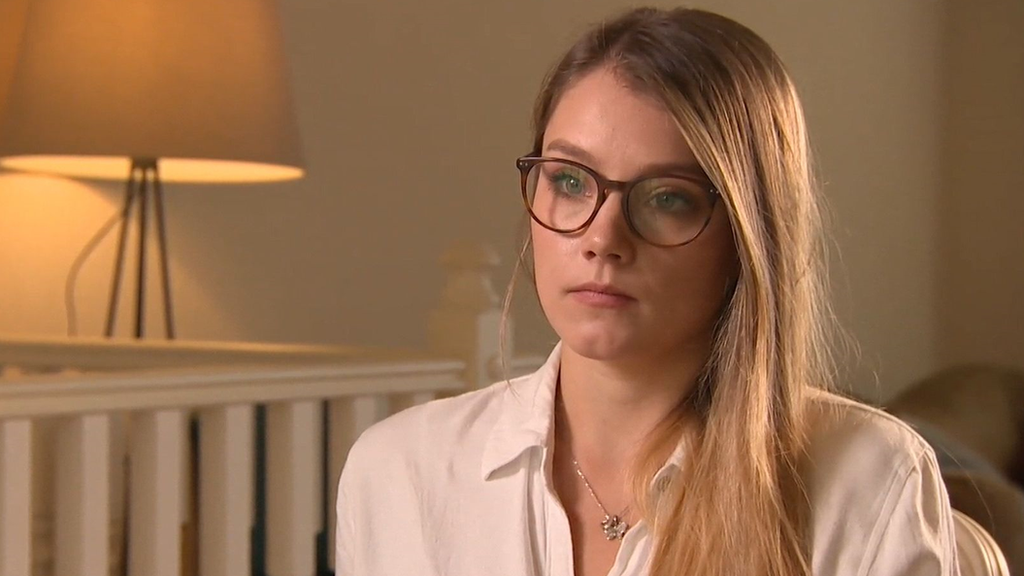South Durham Gymnastics Club accused of abuse and mistreatment
- Published
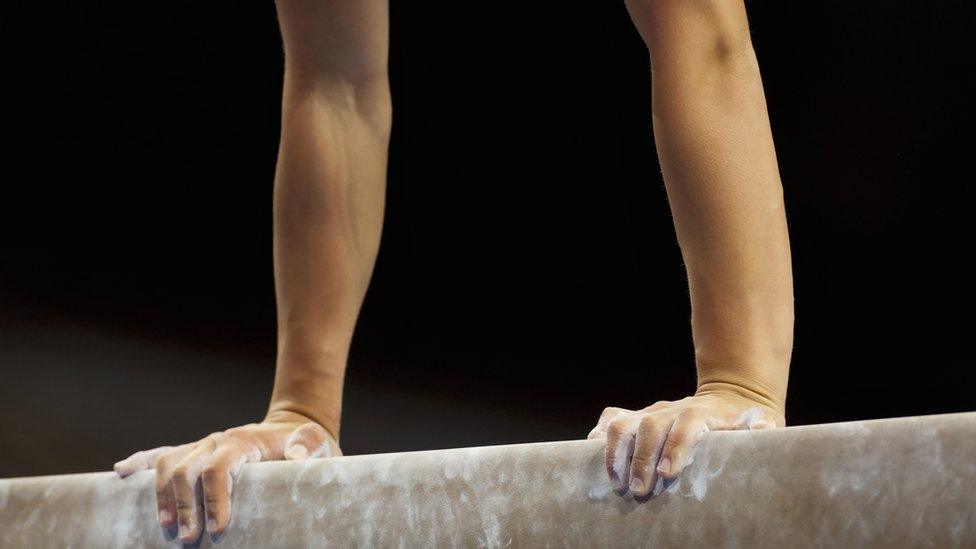
It is claimed the young gymnasts lived in fear of their coaches
Accusations of abuse have been made against the internationally-renowned South Durham Gymnastics Club.
Former gymnasts at the Spennymoor club say children as young as seven were bullied, fat-shamed and put in fear of their coaches.
Some were put under pressure to exercise despite having broken bones, they said.
The club said it "categorically denies any allegations of abuse and mistreatment of any of its gymnasts".
In a statement chairman Paul Anderson also said the club took "any allegation of abuse or mistreatment very seriously" and that it found the claims "very concerning".
"No athlete in any sport should be subject to or endure any kind of emotional or physical abuse at any level and the perpetrators must be held accountable," he said.
There have recently been allegations of abuse within the sport in Britain.
Olympic bronze medallist Amy Tinkler, who trained at South Durham until 2016, revealed on Tuesday she had made a complaint to the sport's governing body but has not said who or where it refers to.
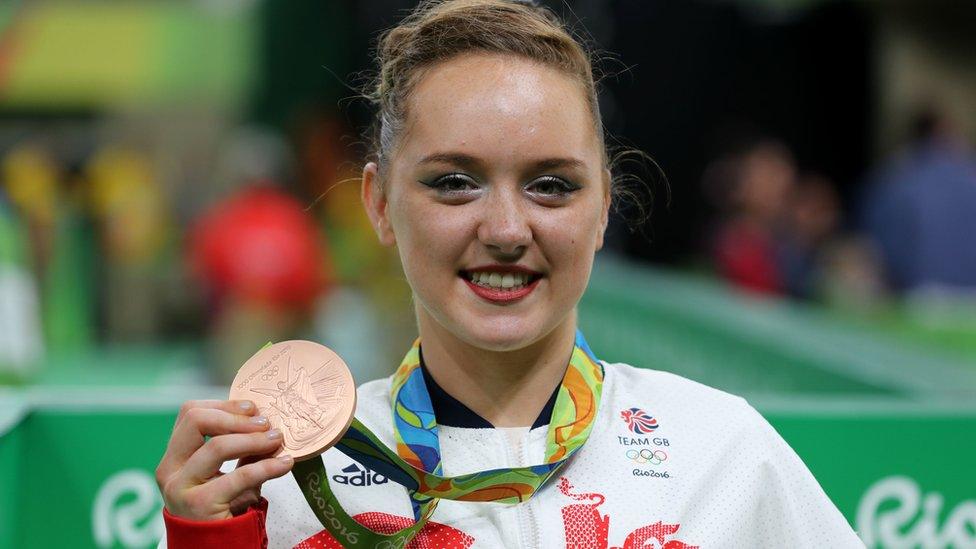
Amy Tinkler won bronze at the Rio Olympic Games
Roxanne Jennison, 32, from Bishop Auckland, joined South Durham in 1995 when she was seven and stayed for 12 years, competing at national level.
She says she was still pressured to practise after an operation on her leg left it in plaster.
"There's nothing wrong with your arms - you can go on the bars," she said she was told.
She was also told to stop using her crutches and get back into training, which was "agony", she said.
"You expect long training hours, you expect to be in pain in your body from training so hard," she said.
"What isn't acceptable is to be humiliated and embarrassed and constantly made to feel scared."
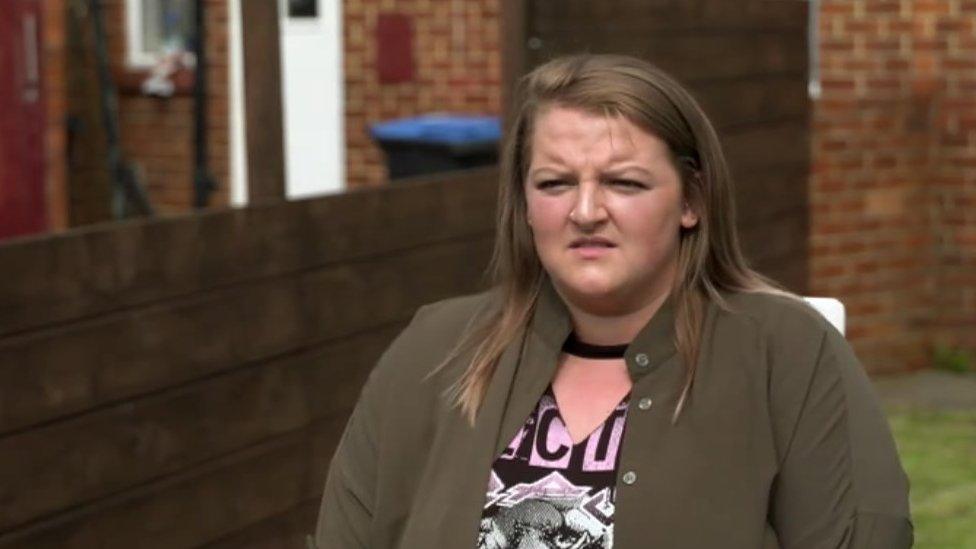
Roxanne Jennison joined the club in 1995
Vicky Marsden said her daughter Emily, 15, was subjected to treatment that was "mentally abusive".
"It really shattered her," she said.
"I didn't know that Emily used to cry herself to sleep - as a mum, that broke me."
Another former gymnast, who wishes to remain anonymous, started training at the club when she was six.
"You were shouted and screamed at because you couldn't perform," she says.
"I broke my fingers and toes. My mum was told not to take me to hospital to get them checked because they'd put me in a cast."
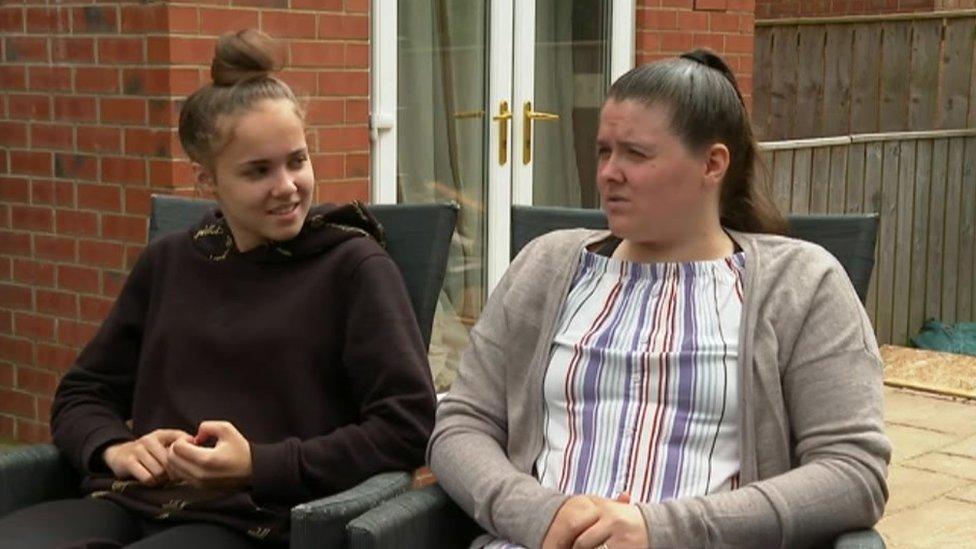
Vicky Marsden says her daughter Emily suffered mental abuse
There are claims so-called "fat-shaming" was common at the club.
Miss Jennison said they were "scared to put on weight".
"I know quite a lot of girls I trained with had, and still have, eating disorders."
Two other former gymnasts said, during a medical sports survey, girls aged eight and nine were called one by one into a room with their coach and examined by two men.
"We had to take our leotards down to our waist," one said.
"I kind of made myself think it didn't happen - it just makes me feel really uncomfortable."
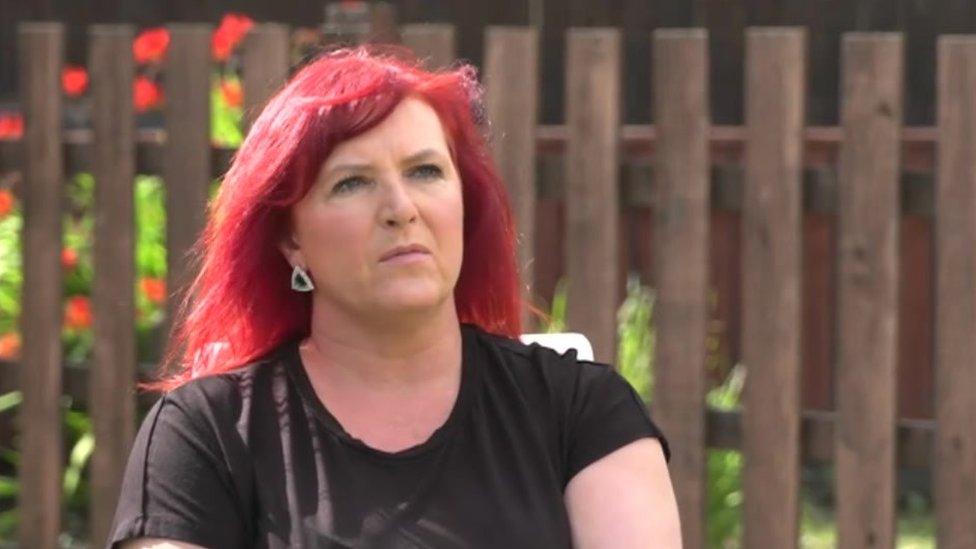
Eileen Wharton believes abusive behaviour was normalised
Miss Jennison's mother, Eileen Wharton, said the club told her she was "one of the good parents".
"I think that was because I didn't speak out and could be manipulated," she said.
"I do now feel tremendous guilt."
Ms Wharton complained about her daughter's treatment to the sport's governing body, British Gymnastics, but no action was taken, she said.
In a statement the body said it "condemns any behaviour which is harmful to the wellbeing of our gymnasts".
It advises any gymnast "who feels they have been mistreated" to report it and said it would not comment on individual cases.
British Gymnastics has stepped aside from an independent review announced on Tuesday to "remove any doubt" over the "integrity or independence" of the process. It is now being commissioned by UK Sport and Sport England.

Follow BBC North East & Cumbria on Twitter, external, Facebook, external and Instagram, external. Send your story ideas to northeastandcumbria@bbc.co.uk, external.
- Attribution
- Published14 July 2020
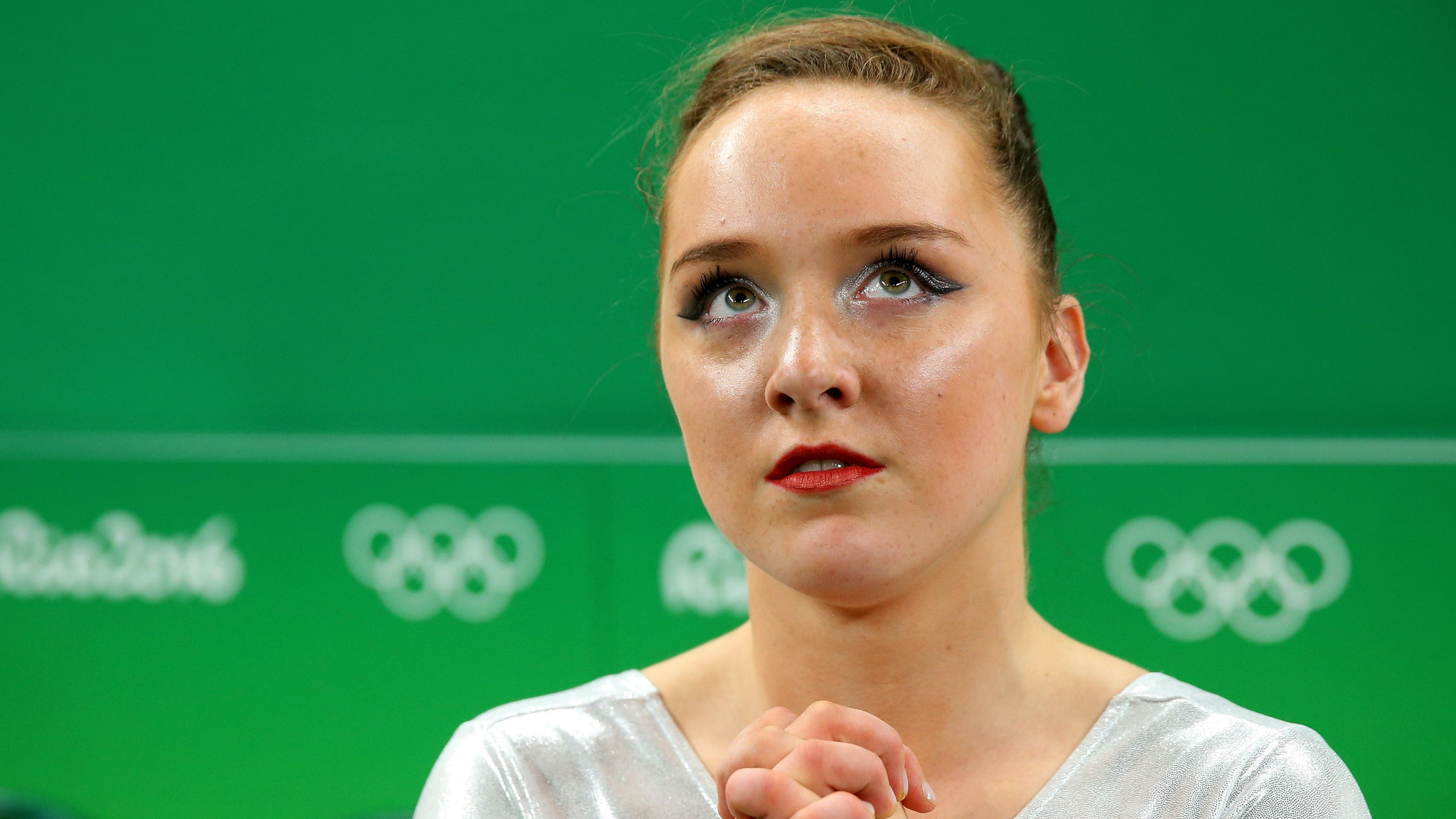
- Attribution
- Published16 July 2020
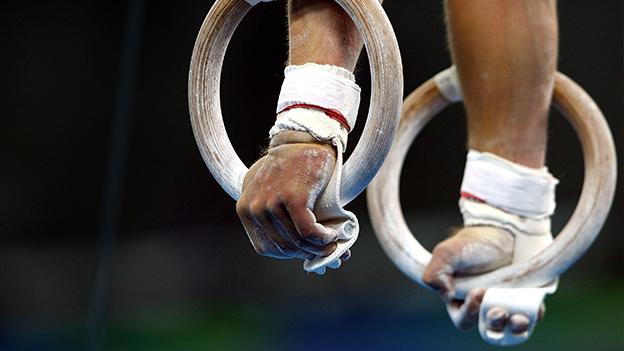
- Attribution
- Published10 July 2020

- Attribution
- Published7 July 2020
